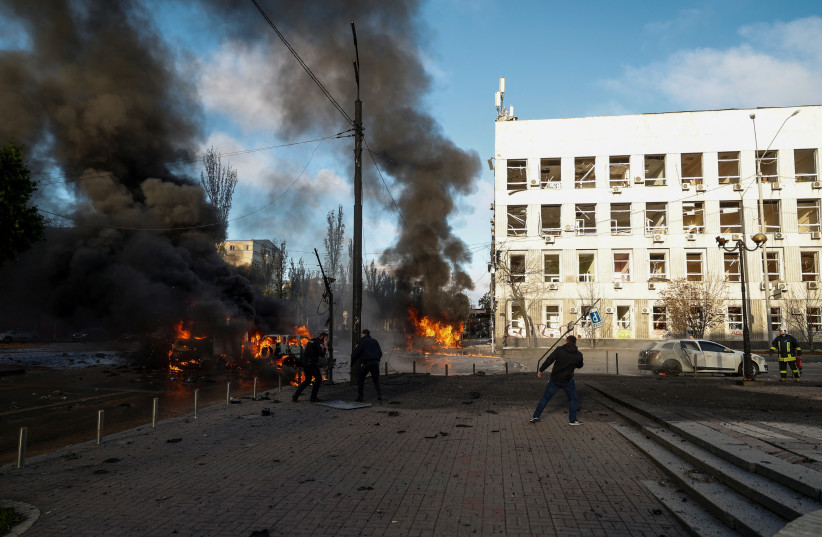Russian airstrikes in the early days of its invasion of Ukraine were designed to shock the country into submission, according to a new study by the Israeli Elrom Air and Space Research Center, but the Russian munitions suffered from poor accuracy.
Targets in initial strikes by the Kremlin were chosen for their psychological impact, but the vital infrastructure wasn't disabled in hopes of pro-Russian forces using the facilities later, the joint Tel Aviv University and Israeli Air Force research center found in one of its first publications.
Russia did attempt to destroy air defenses, but both objectives were marred by inaccuracy; a sample of 30 out of 100 strikes was found to have a 30-40% near-miss rate and a 10% miss rate. This later complicated the failed attempts by the Russian Air Force to achieve air superiority over Ukrainian air space.
"The Russians did not intend to destroy Ukrainian infrastructures, Ukrainian energy infrastructures, Ukrainian airports, Ukrainian ports."
Dr. Sarah Fainberg
"The Russians did not intend to destroy Ukrainian infrastructures, Ukrainian energy infrastructures, Ukrainian airports, Ukrainian ports," explained senior Elrom researcher Dr. Sarah Fainberg, who co-wrote the study with research manager Col. (res) Dr. Assaf Heller, senior fellow Lt.-Col. (res) Daniel Rakov and research intern Itamar Heller.
Why did Russia not want to harm Ukrainian infrastructure and what went wrong?
Fainberg continued, saying that the "key to the operation's success was to avoid harming civilians and avoid having collateral damage on civilian infrastructure because they wanted to replace [Ukrainian President Volodymyr] Zelensky as early as possible with a pro-Russian regime that was supposed to function perfectly. And for this, you need ports, you need airports, you need a civilian population that is happy, that is not destroyed, that is not killed."

The flawed Russian strategy was based on the idea that the Ukrainian government would "swiftly collapse," said the study, and that Moscow assumed "the local population would welcome their 'liberation' with 'bread and flowers.'” The idea of the "special military operation" terminology was in part grounded in this limited combat and propagandistic approach.
Fainberg said her team followed a shift in this strategy, and the Russian targeting of civilian infrastructure, such as winter strikes on the electrical grid.
The accuracy of the initial demoralizing strikes was important, Fainberg said, from a deterrence point of view. This deterrence, and the other Russian objective, to destroy air defenses, failed.
"The Russians did try to destroy Ukrainian air defense assets and Ukrainian radar, but they proved themselves incapable of destroying them, because of their inability to implement the reconnaissance and strike complex, the inability to conduct high precision strikes on moving targets based on real-time intelligence," said Fainberg. "But because of corruption issues, because of technological issues and because of a poor functioning Russian army, they were unable to develop and implement this concept at the operational level."
Fainberg said that the Russians were surprised by the gap between the strategy to obtain rapid victory and the inability to implement it at the operational level. They lacked ammunition stocks and the ability to launch a high number of high-precision guided missiles simultaneously.
"The results of the opening strike, as analyzed in this paper, primarily strengthen the assessment that the accuracy levels of Russian missiles are lower than that of standard Western GPS-guided weaponry," concluded the study. "Yet they also showcase the progress that Russia has made over the past decade to reduce its operational gap with the West in the field of high-precision, long-range guided munition systems."
